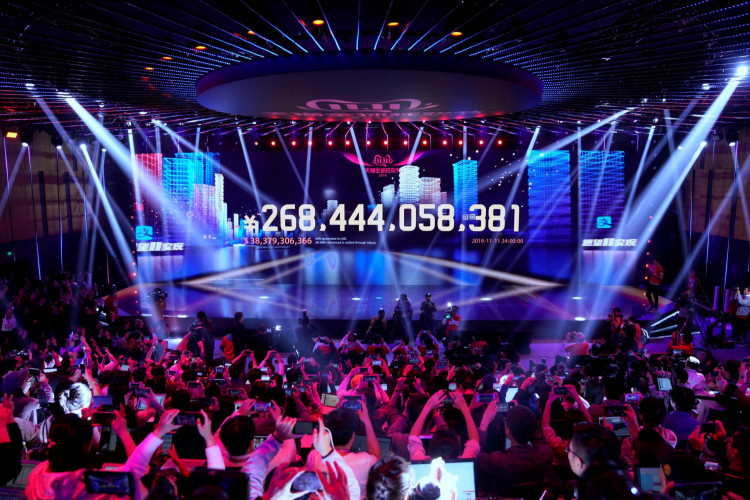During the world's largest shopping event, Chinese shoppers snatched food supplements, face masks, and baby milk powder, with labels including L'Oreal and Nestle among the biggest winners, Alibaba data showed.
The annual Singles' Day retail spree of the Chinese e-commerce giant on Monday carried a record sales of 268.4 billion yuan ($38.38 billion), more than six times the volume of online sales on Black Friday last year in the United States.
This started off the 24-hour shopping bonanza this year with a live performance by U.S. pop star Taylor Swift accompanied by more than 1,000 companies' live streaming ads.
Alibaba said on Tuesday that 299 labels, including LVMH's Givenchy, home appliance makers Dyson and Philips, and sportswear company Under Armour, reached 100 million yuan in gross merchandise price.
Fifteen companies are selling more than 1 billion yuan in products, it said. Huawei Technologies, Apple, Nike, Xiaomi Corp, and Uniqlo were among them.
The most common import item was food supplements, while sales of lipstick, diapers and face wash were also high.
This year's annual shopping festival's sales growth fell to 26 percent, the weakest since the event began in 2009, reflecting how China's e-commerce sales have slowed.
Nonetheless, economists said the growth rate had barely exceeded their targets, suggesting more robust discounts, an emphasis on drawing more consumers from smaller areas, and even the slowing economy as a whole could have benefited as people sought to purchase goods at discounted prices.
"What changed is that this year you've had a lot of consumers being a bit more careful with their buying because the economy is slowing down," said Ben Cavender, Chinese Market Research Group's managing director.
"In general, this year, consumers were kind of waiting for Singles' Day and kind of waiting to make some of those medium-sized sales for which they didn't want to pay full price," Cavender said.
The phenomenon was repeated at home and abroad, with Singles' Day deals noticed at competitors like China's JD.com and Pinduoduo as well as South Korea's 11th Street and Singapore's Qoo10.
JD.com, which initiated its marketing drive on November 1, said the volume of transactions over the eleven days of massive sale reached 204.4 billion yuan.
Uniqlo operator Fast Retailing said the digital experience had increased visits to its physical stores, 700 of which are based in China, adding that among its most popular products were thermal underwear and ultralight jackets.






